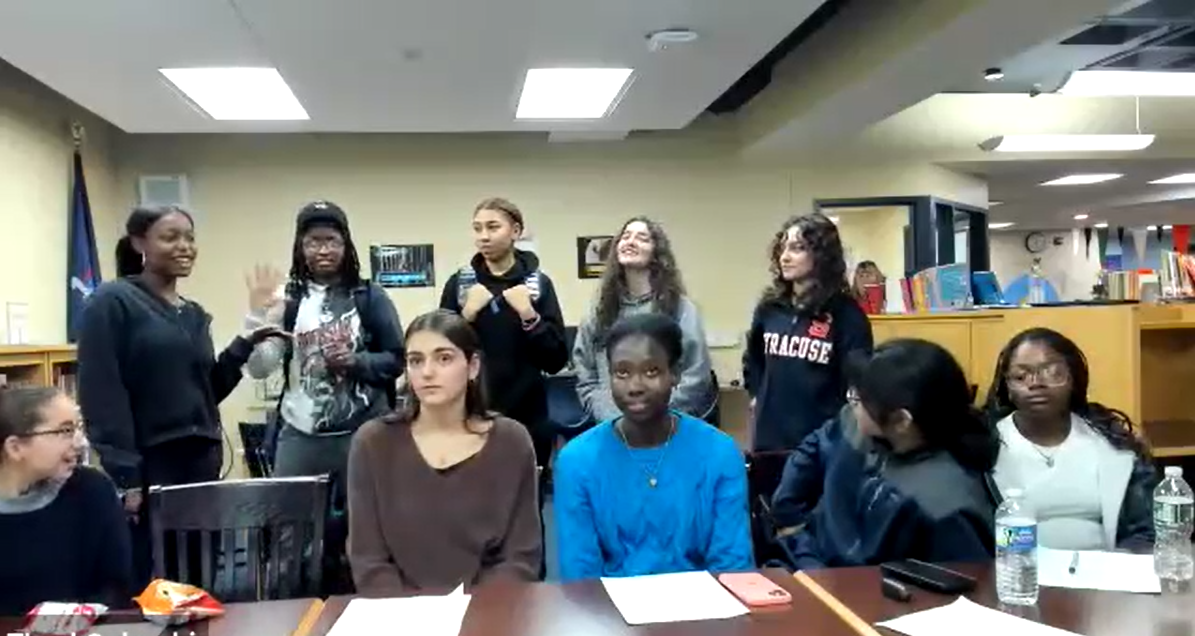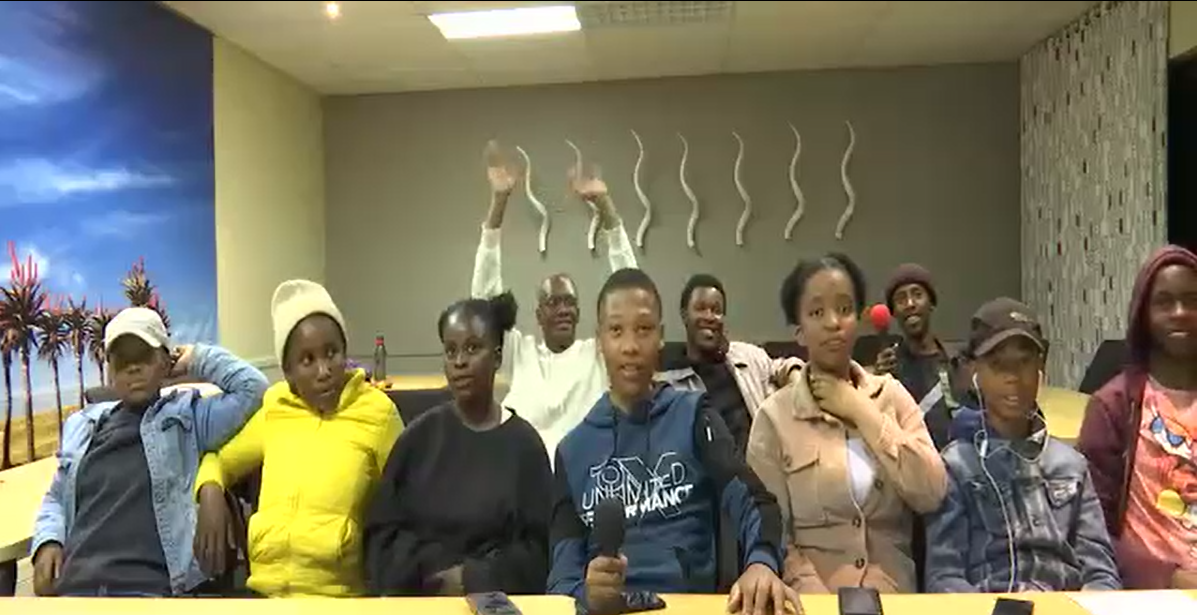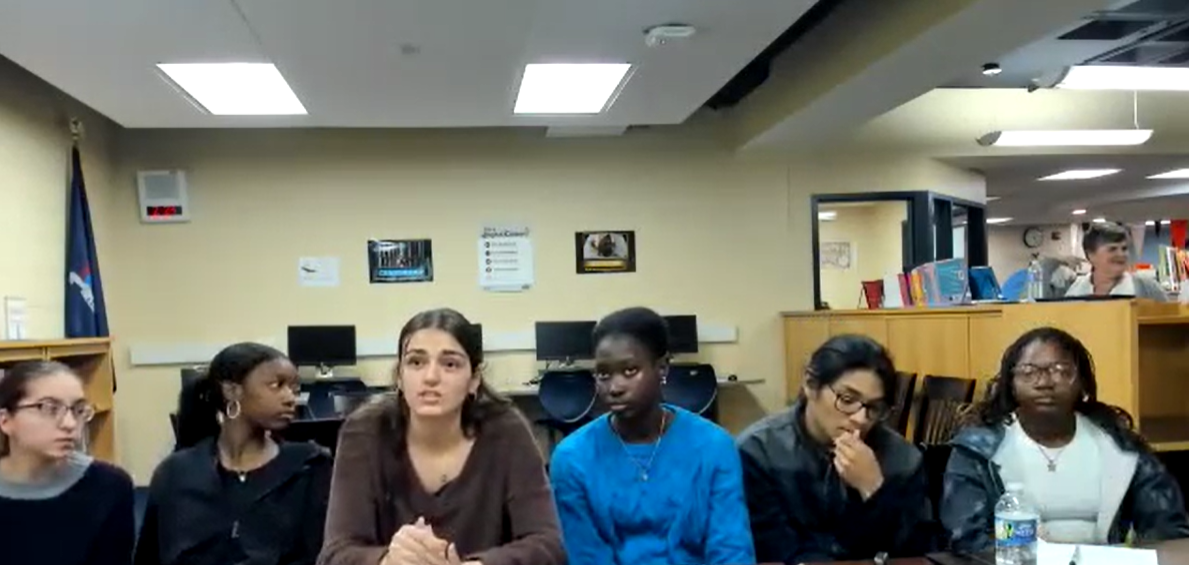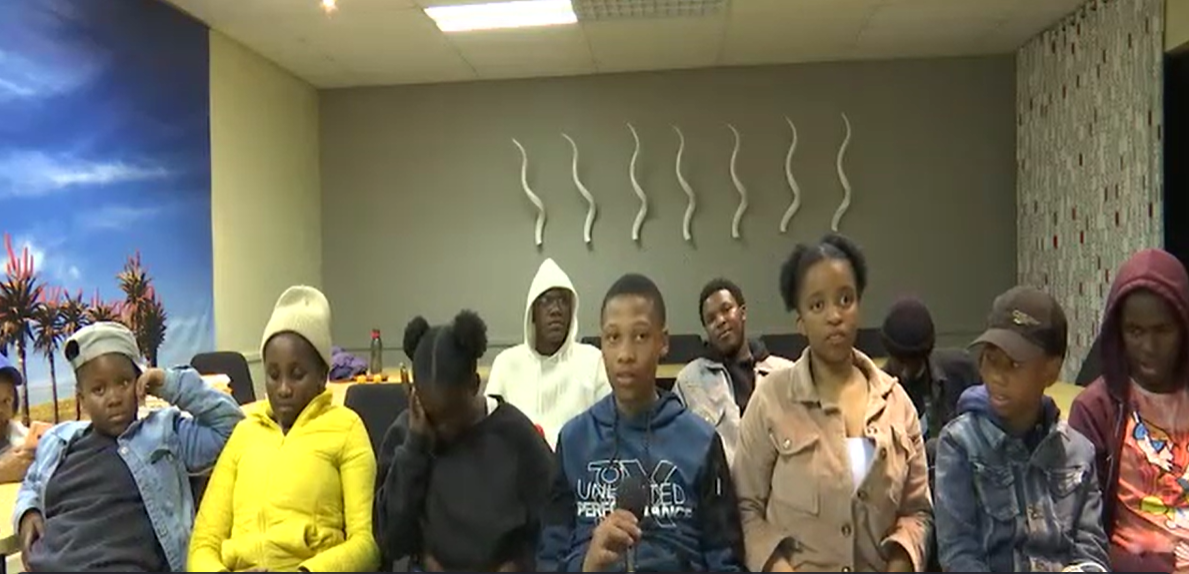The Pressures of Youth, Unpacked Without Borders: South African and American Teens Find Common Ground
From the bullying brought on by their peers to the high expectations of teachers and sports coaches, high school students around the world face stress from multiple sources in their lives. Be it anxious thoughts keeping you up at night, or the constant pressure to perform to a high academic standard, the adolescent period often sprouts leaves of mental illness. On November 17, 2023, a group of students from opposite sides of the globe came together for the second episode of their podcast, “Connecting Communities”, in which they discussed this mutual struggle and topics surrounding it.
“Connecting Communities” is created by Inkululeko, 8th to 11th graders from Ntsika Senior Secondary School, and Nathaniel Nyaluza Senior Secondary School in Makhanda, South Africa, 12th graders from Institute of Technology in Syracuse, NY, and is supported by The John Ben Snow Memorial Trust, the Rhodes JMS (School of Journalism and Media Studies), Rod Amner, Katie Argus, and is edited by Bloomfield College of Montclair State University student Daisha Robinson. The goal is to provide students from both communities with the benefits of an international exchange program without the high costs of studying abroad. Through the podcast, students can build connections, leadership skills, and capabilities in intercultural communication.
The students in South Africa had the chance to meet one of the ITC security guards, as well as their girl’s basketball team. Two South African students who expressed interest in sports were very excited, one piping up “Yes, please!’, when asked if they would like to meet them. They were also a bit confused about the fact that the team was made up solely of girls, as it may be more uncommon for girls in the township to participate in sports.
Inkululeko’s Nosi Dosi, the facilitator for the students in South Africa, hosted the conversation this time, proposing the initial questions throughout the discussions.
During the raw discussion which spanned cultures, students from the US all mentioned that the overload they experience from taking accelerated/college courses, on top of extracurricular activities and employment can have negative effects on their mental health, such as burnout (a state of emotional, physical, and mental exhaustion caused by excessive and prolonged stress), depression, anxiety, and mental breakdowns.
As one student stated, “I mean, we’re kids, so I feel like there’s only so much you can handle,... it’s a lot of stress built up, and not knowing your resources or knowing how to handle it can trigger a breakdown.” A couple of other students from ITC who come from immigrant families shared that they feel they must prove to their families that they are worthy of being part of their family and that they did not come to America for no good reason. They feel they must be successful and go beyond what their family has done. One student even stated that his name is not his own, as his first name was inherited from his grandfather and his last from his father. “I’m not allowed to drag their names through the mud. As they would say, I have to succeed them to be worthy of that name, and I have to go to college and be successful, I have to get scholarships, I have to have, like, 100s, and that’s not even enough for my family, you have to succeed 100 to be acknowledged and otherwise, you’re called a disgrace.” He expressed that this causes him immense stress. Other students also shared that due to their family having no college graduates so far, they feel pressured to be the first to go through with it and be successful. In support, a South African peer reminded the students from the US how important it is to be conscious of your commitments to not overwork yourself, and as he put it, “It plays a huge role in the way that you behave and can cause you to have mood swings.”
In some capacity, these sentiments of feeling pressured were very similar to what their South African participants had to say on the matter. A student mentioned that their parents compare them to other students whom they may not know as well as their children do, and another brought up that his peers have excluded him when he wasn’t able to attend social gatherings due to focusing on his studies. “Nah, you ain’t cool anymore, just because you can’t come with us.” they would tell him. One girl mentioned she was stressed about her chosen classes for her next grade, and whether or not her grades would qualify her to attend them, which echoes the fear many other students expressed of not being good enough for college or university.
Amidst this discussion, a very insightful question chimed in from one of the Syracuse participants:
“May I ask, does your school or your community have a lot of job opportunities after your second education, or do you have to continue after your secondary education?”
Students explained that, while very sparse, there are a select few ways that they gain some experience and money. These examples ranged from watching TikTok for money, doing stunts on social media (i.e. ‘Do it for the ‘Gram/Cam’ stunts), starting small businesses such as beauty/hair salons and car washes, and even digital marketing.
“From my perspective, South Africa does not provide a lot of job opportunities, we gotta hustle and make jobs for ourselves…because we know there are not a lot of jobs around South Africa.”
A participant shared this, which was then backed by a peer of his, “Our government right now fails to focus on developing opportunities for the youth. If you are a 1st year, 2nd year, or after Matric, you have to volunteer or search for jobs in clubs and restaurants, like bartender and waitress jobs. This is how some of our friends and youth earn a little cash.”
The host, Nosi Dosi, explained that while there is a surplus of graduates, jobs are scarce. Many people in South Africa want to come to the States to find work for this reason. The discussion on this topic cemented in our US learners' minds that the job pool is not the same as it is here. Their silence following the learning of this knowledge confirmed this, as they realized the true magnitude of some of the struggles their globally distant peers face.
When it comes to the resources available for participants to help them cope with the stress and mental issues they face, comes a song that sings an oddly familiar tune for both sides.
While South Africa and the United States do differentiate in available resources, with the States having more access to mental health resources, there still lies a common ideology with some folks from both communities that their issues are not bad enough, or that they need to toughen up, and that due to this justification, they don’t need to reach out to anyone.
Additionally, specifically on the South African side, students and even faculty tend to be unaware of the resources available to them, as culturally, it is common to be raised under the impression that you must be strong. Everyone involved in the discussion agreed that it is important to spread that it is okay to have bad days and to be upset, to attempt to break the negative stigma surrounding mental health.
At one point, the conversation fluttered over to the topic of the pandemic, and how schools handled it. Surprisingly, ITC, Ntsika, and Nathaniel Nyaluza did practically the same protocol.
Essentially, the schools separated the students into two groups, and the groups would alternate in attendance. For example, say there is a blue group and a green group. Blue students would attend on Monday and Wednesday, while green students would attend on Tuesday and Thursday. The stark differentiation in these practices, however, was the States’ accessibility to online learning and the Internet. South African learners expressed that their school passed everyone for a term during 2020 because they had not been taught all that they were tested on due to being completely out of school for some time during the pandemic, and their schools’ staff considered this circumstance and allowed the mass curve.
As the discussion concluded, a feeling of understanding began to twinkle among the students. In exploring the similarities and differences in their lives and the way they navigate them, they relate to one another even across cultures. We must nurture this spirit, particularly now with such polarization, reminding our youth that certain similarities cannot be ignored - we love, fear, and hurt the same. Regardless of origin or background, our humanity binds us. In time, these learners will grasp how similarity supersedes difference, and distance shrinks in this small world they share.
We hope the deeply personal perspectives shared in this exchange will spark listeners to have similar open dialogues exploring mental health, overcoming the stigma, and building connections across all kinds of divides. Utterly, we all grapple with inner turmoil - but together we can lighten each others' loads.
Thank you to the students who have participated in this collaboration for being open and honest with both yourselves and each other, and allowing for a supportive and validating discussion for everyone in attendance. We at Inkululeko know that your effort may spark fireworks of conversations across the globe, one school at a time. The full podcast episode will be available for listening soon; in the meantime, check out the first episode here!




